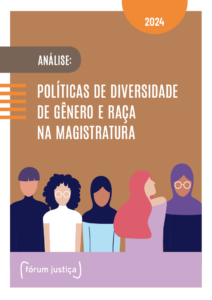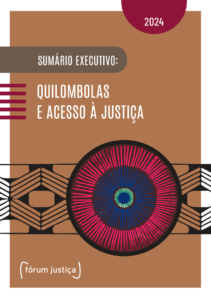Fórum Justiça (FJ) is an articulation of members of the justice system, academics, social movements and civil society organizations committed to the construction of a democratic and inclusive justice, capable of acting to mitigate social inequalities and combat human rights violations.
FJ members support an integrative model of justice, based on the recognition of the rights of different social groups, especially the vulnerable, marginalized and excluded from spaces of power; on the redistribution of goods and wealth; and on popular participation.
Despite some progress, the organization and functioning of the justice system still favour authoritarian, elitist, racist and sexist corporate cultures and behaviours. Historically, judicial institutions have little permeability to the demands of vulnerable sectors of the population.
For Fórum Justiça, the justice system is a public service, and as such has the duty to maintain channels of dialogue with the different social actors and prioritize the protection and promotion of the rights of all.
Founded in 2011, in Rio de Janeiro, from the mobilization of a group of public defenders and law students, FJ holds debates on judicial policy, participates in research and diagnostics and develops strategic actions for the democratization of the justice system in all Brazilian regions.
The articulation acts from the outside in, through dialogues and bridges between civil society and the institutions that make up the justice system; and from the inside out, with the identification of inequalities within the organs of this system.
Throughout its ten years of activities, Forum Justiça has worked on different fronts. Currently, it prioritizes the following thematic axes: Race, in which it seeks to confront institutional racism in the justice system; Gender, dedicated to combating gender discrimination in these institutions; Ibero-Latin American, which establishes dialogues on common challenges and perspectives with organizations from Latin American countries; Cities, which brings together actions with collectives and civil society organizations in the search for solutions to specific conflicts and demands; and Democratization of the Justice System, which represents the commitment of the articulation to the transformation of the justice system, making it open to popular participation.





